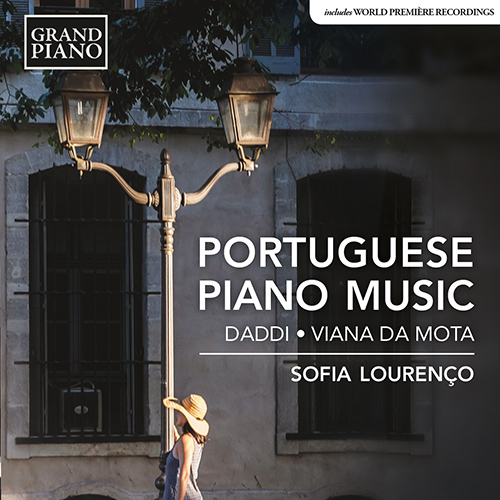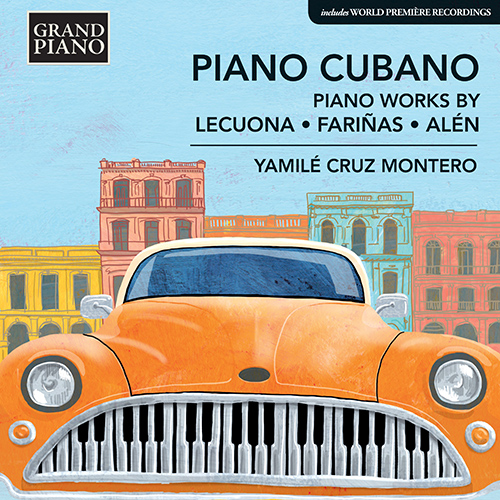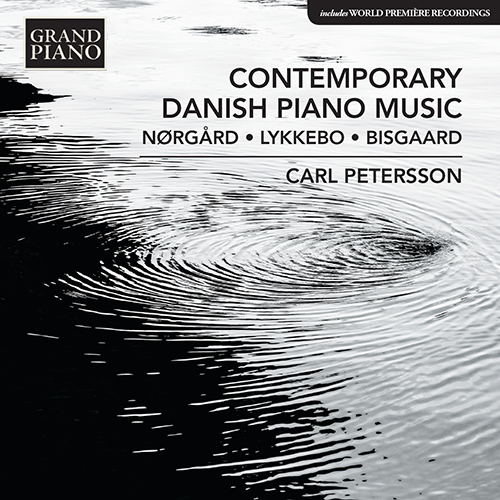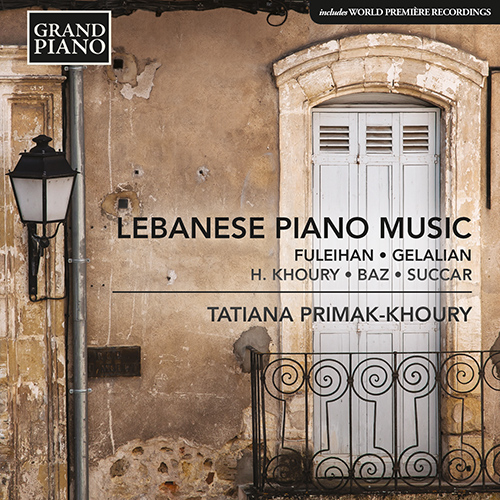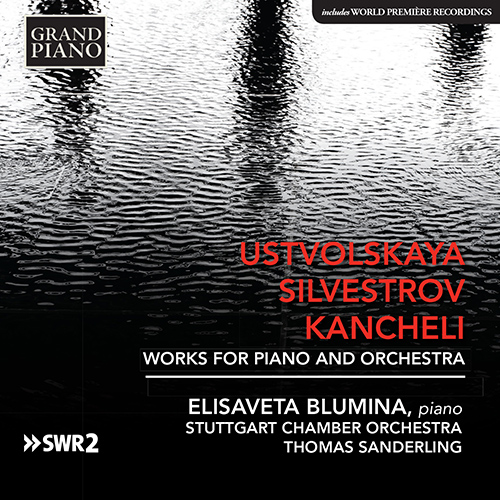TRAVELS IN MY HOMELAND
PORTUGUESE PIANO MUSIC
VASQUES-DIAS • LOPES-GRAÇA
JOANA GAMA
‘One of my favourite works is Années de Pèlerinage, by Franz Liszt, in which the pieces relate to paintings, sculptures, poems or legends. I realise now that one of the things that has moved me since I was a child is the possibility to access other forms of art and life through music. For this reason, I decided to research the works Viagens na Minha Terra, by Lopes-Graça, and Lume de chão, by Vasques-Dias, for my PhD. This recording with Grand Piano provides the possibility to present two very personal perspectives on Portuguese culture, sharing its traditional and emotional particularities through the piano.’ – Joana Gama
VASQUES-DIAS, A.: Lume de chão –
Made up of Memories and Affections: Ao lume (‘By the fire’)

About this Recording
Fernando Lopes-Graça (1906–1994) and Amílcar Vasques-Dias (b. 1945) are linked in their musical reflections on Portuguese identity, but at widely differing points in that country’s history. Lopes-Graça transformed traditional songs into poetic and hard-edged statements, helping to create a ‘national collective spirit’ that would not be bowed by dictatorship. Vasques-Dias’s approach to folk culture is based on more personal feelings and emotions, recalling the countryside of his childhood and its landscapes today.
(’FIREPLACE: MADE UP OF MEMORIES AND AFFECTIONS’) (2004) (29:41)
19 PEÇAS PARA PIANO SOBRE MELODIAS TRADICIONAIS PORTUGUESAS
(‘19 PIECES FOR PIANO ON TRADITIONAL PORTUGUESE MELODIES’) (1954) (34:56)
(‘Penitence Procession in São Gens de Calvos’) (02:45)
(‘In the Pilgrimage of Senhor da Serra in Semide’) (01:19)
(‘In the olden days, Figueira da Foz danced the Lundum’) (01:58)
(‘In Alcobaça, dancing an old Fandango’) (01:43)
(‘In Ourique do Alentejo, during the St John Festivities’) (02:45)
cantam o bendito (‘In São Miguel d’Acha, during the storms, women and men sing the Bendito’) (01:55)
(‘In Silves, there are no more enchanted moorish maidens’) (01:03)
(‘In Pegarinhos, an old woman sings an ancient spinning song’) (01:13)
(‘In Monsanto da Beira, gathering the margaça’) (01:20)
(‘In Setúbal, eating the lovely orange’) (01:60)
(‘In Vinhais, listening to an old romance’) (01:46)
(‘The adufes rumble at the pilgrimage of Senhora da Póvoa of Val-de-Lobo’) (01:33)
TOTAL TIME: 64:41

JOANA GAMA
Joana Gama (b. 1983) is a Portuguese pianist who has participated in multiple projects, both as a soloist and within collaborations, not only in classical music, but also in the fields of cinema, dance, theatre, and experimental music. This recording is the outcome of years dedicated to the research and performance of Portuguese music. In 2017, Gama defended her doctoral thesis Performance Studies on Portuguese Contemporary Music for Piano: the particular case of evocative music of elements of the Portuguese culture at the University of Évora, supported by a scholarship from the Portuguese government.
MULTI-COMPOSER COLLECTIONS WITH A GEOGRAPHICAL THEME
– Record Geijutsu

– Piano News
– Fanfare

|

★★★★★
|


